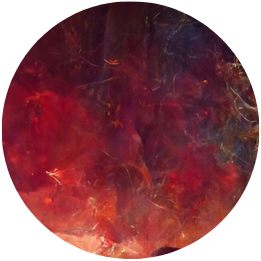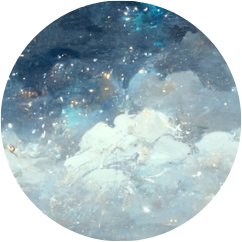Visions Of The Village
Visions
Of The
Village
Of The
Village
a masterclass on Island, the richest vision of a psychedelic society ever turned to prose
a masterclass on Island, the richest vision of a psychedelic society ever turned to prose
Visions Of The Village is an eight-week learning journey on Island, Aldous Huxley's utopian masterpiece, studying a vision of a transformed world and the paths to make it real

An Atlas of Change
Island renders a wildly beautiful society, charting seven paths that lead to its creation. The cohort workshops these paths, exploring their role as levers of change.
An Atlas of Change
Island renders a wildly beautiful society, charting seven paths that lead to its creation. The cohort workshops these paths, exploring their role as levers of change.
Course of study:
Course of study
"Writing Island was a colossally difficult task... It is an extraordinarily intelligent book."
"Writing Island was a colossally difficult task... It is an extraordinarily intelligent book."
Cohort Design:

The group will read Island in seven parts, focusing each week on a key pillar of Huxley's utopia
Workshop the Story

The cohort includes practices to help live into the principles Huxley lays out in the book
Apply the Learnings

Building fellowship with other changemakers is part of the medicine of the cohort
Connect with Peers

The Psychedelic Society is led by artist and storyteller David Alder, author of the viral graphic novel We Will Call It Pala, a story described by Tim Ferriss as "required reading" for the psychedelic field.
This course is an expansion of David's work supporting philanthropists searching for upstream interventions in making giant change. David uses the lens of Island to help people visualize a transformed world and chart the paths to make it real.
This course is an expansion of David's work supporting philanthropists searching for upstream interventions in making giant change. David uses the lens of Island to help people visualize a transformed world and chart the paths to make it real.
Meet your host
Course Information
- The cohort gathers weekly for one-hour calls on Zoom, Tuesdays, 12 - 1pm Eastern
- There is assigned reading each week from portions of Island, breaking the book into parts
- An additional call takes place each week on Fridays, 1 - 2pm Eastern, an optional office hours, an intimate setting to discuss the book and connect as peers
The course breaks Island into seven parts read over eight weeks. Each part corresponds to a key pillar within the text - a lever of change Huxley points to as a powerful intervention. Weekly sessions review the text, highlight key learnings, and expand the frame to explore how the pillar is in action in the world today.
Though weekly calls will vary in structure depending on the week's text, sessions will include many of these elements:
Though weekly calls will vary in structure depending on the week's text, sessions will include many of these elements:
- Review: an overview of that week's reading, highlighting key aspects of the text
- Lecture: stories of the history and context of Island and about how the core pillars are in action in the world, delivered by David Alder
- Workshop: design exercises around applying the lessons of the book to one's own life or work in the world
- Interview: for some sessions, distinguished advisors will join the course - world-class practitioner within that week's pillar, for an interview and Q&A
- This public cohort is available to anyone who wants to empower their work through studying a vision of a transformed world and the paths to make it real. Because of Huxley's role as the godfather of psychedelics in the West, a large number of participants work in or adjacent to the psychedelic field.
Aldous Huxley achieved global fame for his blockbuster dystopia Brave New World. As he grew as a human being and became more spiritual, he came to regret his legacy of a story for how things fall apart. He believed a better world was possible, and he committed his life to searching for what it was.
Three decades of research took him to dozens of countries, hundreds of conversations with leading thinkers of his age, and through several thousand books. Huxley, considered one of the 20th century's brightest minds, turned his polymathic brain to deciphering how humanity could thrive. This would be the material for his utopia, Island.
Within days of finally beginning Island, Huxley was diagnosed with cancer. He spent the next two years racing against death, his health deteriorating, struggling to leave behind his vision of a better world. In 1962, he published Island knowing it was flawed. The result was a stilting novel that encases the life's work of a once-in-a-generation mind.
Even today, Island feels decades ahead of its time. In the early 1960s it felt virtually incomprehensible to mainstream society. Critics said Huxley had lost his touch. Though the book was a commercial failure, the story's impact was profound. The men and women who would become the luminaries of the counterculture - Timothy Leary, Ram Dass, Alan Watts, and many more - viewed Island as an astounding work of genius, a roadmap to the new civilization of the Aquarian age.
One of the great tragedies of this pivotal time in history was that Huxley's death left a void of leadership and eldership. In many ways, the shadows of the counterculture represent failed attempts and misinterpretations of creating the society Huxley laid out.
Three decades of research took him to dozens of countries, hundreds of conversations with leading thinkers of his age, and through several thousand books. Huxley, considered one of the 20th century's brightest minds, turned his polymathic brain to deciphering how humanity could thrive. This would be the material for his utopia, Island.
Within days of finally beginning Island, Huxley was diagnosed with cancer. He spent the next two years racing against death, his health deteriorating, struggling to leave behind his vision of a better world. In 1962, he published Island knowing it was flawed. The result was a stilting novel that encases the life's work of a once-in-a-generation mind.
Even today, Island feels decades ahead of its time. In the early 1960s it felt virtually incomprehensible to mainstream society. Critics said Huxley had lost his touch. Though the book was a commercial failure, the story's impact was profound. The men and women who would become the luminaries of the counterculture - Timothy Leary, Ram Dass, Alan Watts, and many more - viewed Island as an astounding work of genius, a roadmap to the new civilization of the Aquarian age.
One of the great tragedies of this pivotal time in history was that Huxley's death left a void of leadership and eldership. In many ways, the shadows of the counterculture represent failed attempts and misinterpretations of creating the society Huxley laid out.
Click the button at the bottom of the page that says, "Join Cohort." This will prompt you with an option to reserve your spot today.
“Science is not enough, religion is not enough, art is not enough... Nothing short of everything will really do.”
-Aldous Huxley, Island

Cohort Dates:
Tuesdays 2 - 3pm Eastern
February 11th - April 1st
Office Hours - Fridays 1 - 2pm
Price: $425
Tuesdays 2 - 3pm Eastern
February 11th - April 1st
Office Hours - Fridays 1 - 2pm
Price: $425

Cohort Dates:
Tuesdays, 2 - 3pm Eastern
February 11th - April 1st
Office Hours - Fridays 1 - 2pm
Price: $425
Tuesdays, 2 - 3pm Eastern
February 11th - April 1st
Office Hours - Fridays 1 - 2pm
Price: $425

Once in a very rare while, we will send a short email updating subscribers about the launch of a new story. You can unsubscribe at any time.

Stay up to date as we publish new stories.

Welcoming our connection, and eager to learn more about the stories on your heart.

Are you called to tell a story?
Share a bit about yourself and what brings you to Parables Of Change

The Edge Of The Horizon
It's thrilling to hear that you're interested in joining the cohort. Share a sentence about what brings you here, and David Alder will be in touch to schedule an intake call.

Parables Of Change
Course Design:
Schedule: Wednesdays, 3:00 - 5:30pm Eastern
May 22nd | May 29th | June 5th | June 12th | June 19th | July 3rd
Price: $875
- Six weekly Zoom calls, 2.5 hours each
- Structured writing process with deadlines + accountability
- Weekly office hours (optional)
- Two rounds of edits + feedback from David Alder
- Feedback, notes, and support from other writers
- Access to Parablitians alumni group
Schedule: Wednesdays, 3:00 - 5:30pm Eastern
May 22nd | May 29th | June 5th | June 12th | June 19th | July 3rd
Price: $875

Attention is at the heart of Island. The most critical lesson in the book is that in order to build a more beautiful world, we must regain command of our attention and be able to place it where we wish. Attention, Huxley suggests, is the doorway to transformation. To pay attention is to become in touch with our intuition. To feel intuition is to gain the power to discern.
The cohort will examine the role of attention in creating giant change, studying the more than forty pages Huxley dedicates to the topic, including an entire chapter on how children are taught to master their attention and the power that this has.
The cohort will examine the role of attention in creating giant change, studying the more than forty pages Huxley dedicates to the topic, including an entire chapter on how children are taught to master their attention and the power that this has.
Attention

One of the more profound ideas in Island is the "Mutual Adoption Club," a group of twenty families of different ages that commit to supporting one another in parenting, care for the elderly, and tending to life's transitions. In our modern, individualistic society, the idea of revillaging seems especially profound.
The cohort will study models of interdependence laid out in the book while exploring their practical applications in the world today. Of special focus is the idea of using life's transition moments - birth and celebration, coming of age and eldering, tragedy and loss - as opportunities to build a vessel of deeper connections through which to move through life.
The cohort will study models of interdependence laid out in the book while exploring their practical applications in the world today. Of special focus is the idea of using life's transition moments - birth and celebration, coming of age and eldering, tragedy and loss - as opportunities to build a vessel of deeper connections through which to move through life.
Belonging

In Island, the final rite of passage from adolescence to adulthood involves climbing a sheer cliff in pairs. Young people train for more than a year for the rite, seeking mentorship from elders and guidance from older peers, strengthening their bodies, and practicing collaboration when the stakes are high.
The cohort will study the role of rites of passage in creating wise, empowered, service-minded young people, and the critical need to demarcate adolescence from adulthood. The group will learn about rites of patterns in modern contexts and explore the designs that create the greatest impact not only for the young participants but the entire community as well.
The cohort will study the role of rites of passage in creating wise, empowered, service-minded young people, and the critical need to demarcate adolescence from adulthood. The group will learn about rites of patterns in modern contexts and explore the designs that create the greatest impact not only for the young participants but the entire community as well.
Initiation

What is perhaps the most profound detail in Island is also the most timely. At the time of deepest cultural division, with entrenched interests and little appetite for reform, the wise leaders of the society in the book choose to focus their energies on pain. They develop methods to alleviate unnecessary suffering. Pain touches everyone, and healing is one of the few forces powerful enough to motivate people to change.
The cohort will study the techniques laid out in Island to eradicate unnecessary pain, and welcome a world-class practitioners of novel methods of empowering people to become agents over their physical and emotional pain.
The cohort will study the techniques laid out in Island to eradicate unnecessary pain, and welcome a world-class practitioners of novel methods of empowering people to become agents over their physical and emotional pain.
Healing

The people in Island make an art form out of what Huxley calls, "The Yoga Of Love." Sacred sexuality sits at the center of the society. The subtle and profound impact of this welcoming of full humanity is that shameless, conscious embodiment changes people's desire to mass consume.
The cohort will study the role of healthy sexuality in creating a richer sense of aliveness, connectedness, and presence. The group will welcome the remarkable creator of an intentional community that embraces eros, and explore avenues to our society could becoming more authentically embodied and less possessed by lust.
The cohort will study the role of healthy sexuality in creating a richer sense of aliveness, connectedness, and presence. The group will welcome the remarkable creator of an intentional community that embraces eros, and explore avenues to our society could becoming more authentically embodied and less possessed by lust.
Sexuality

The society in Island turns birth and death, life's most crucial doorways, into acts of ritual and beauty. In a remarkable scene, a young girl from the island asks the protagonist, an outsider, how many births and deaths he witnessed growing up. "Why none," the man says. Shocked, the girl asks, "You never saw anybody dying, and you never saw anybody having a baby? How did you get to know things?"
The cohort will study the role of birth and death in helping create reverence for life, supporting a culture of slowness, calm, and peace. The group will workshop ways to help this society could reimagine what birth and death can be.
The cohort will study the role of birth and death in helping create reverence for life, supporting a culture of slowness, calm, and peace. The group will workshop ways to help this society could reimagine what birth and death can be.
Birth & Death

A foundational practice in the society of Island is ceremonial use of psychedelics, helping young people come of age with wisdom, adults turn toward beauty throughout their lives, and old people transcend their fear of death. The entire society is structured around technologies that help people become wise. Psychedelics are the rare banquet, yet everyday life is filled with many blessed meals.
The cohort will study Huxley's pre-counterculture rendering of a psychedelic society to help expand the frame of how psychedelics might be integrated into society today while exploring the role of mystical experience in building a path to peace.
The cohort will study Huxley's pre-counterculture rendering of a psychedelic society to help expand the frame of how psychedelics might be integrated into society today while exploring the role of mystical experience in building a path to peace.
The Numinous
This website and its content is copyright of
here and now studios © 2024
here and now studios © 2024

